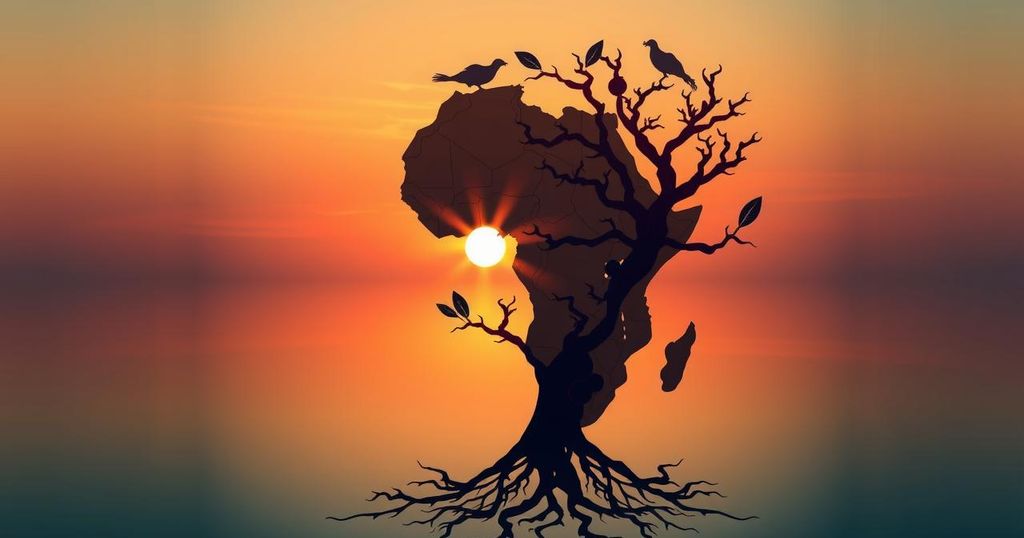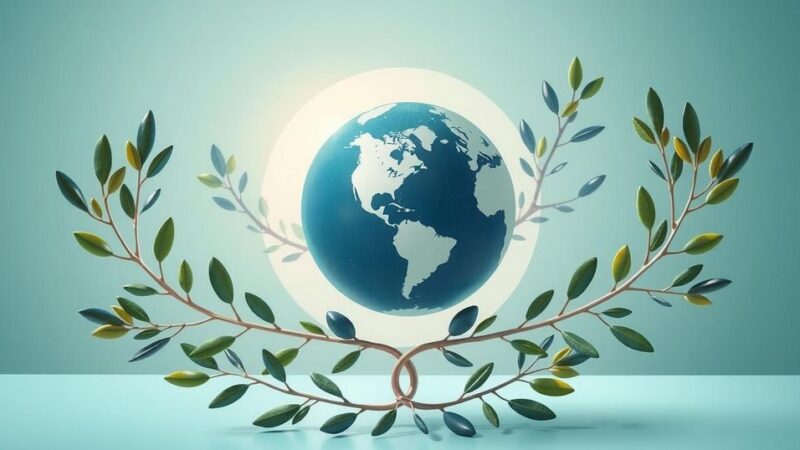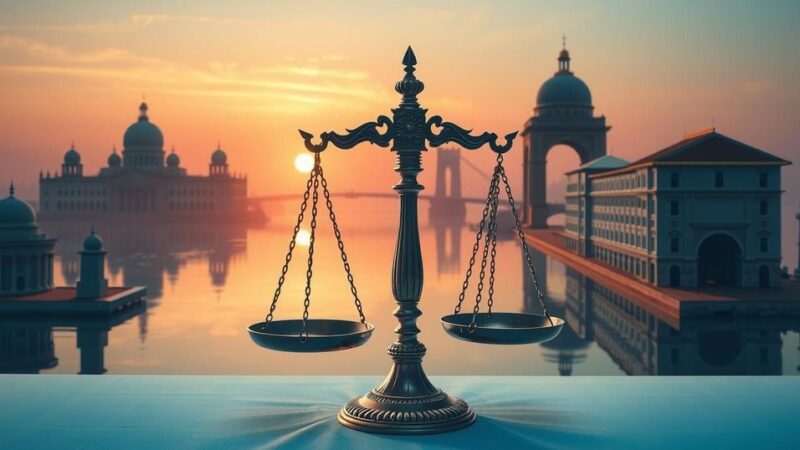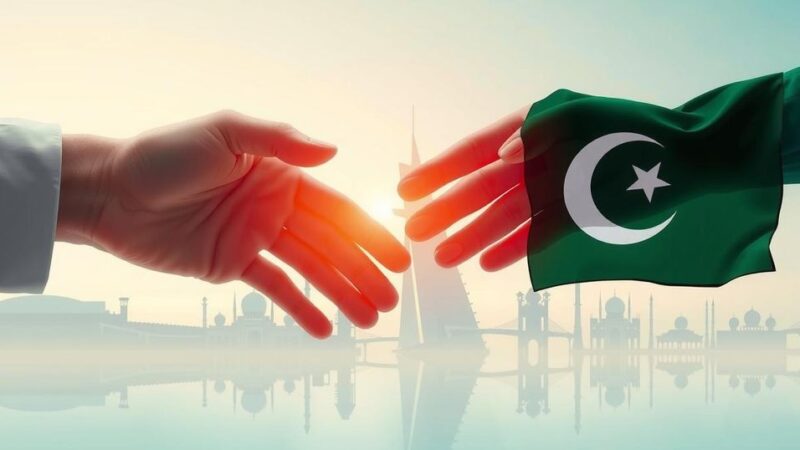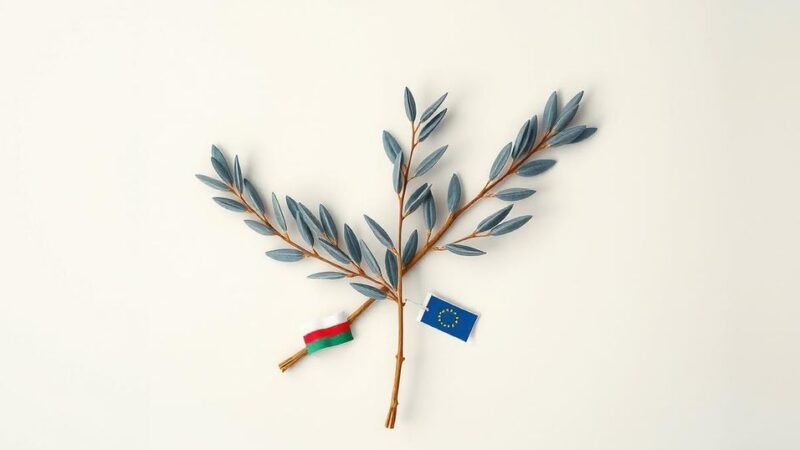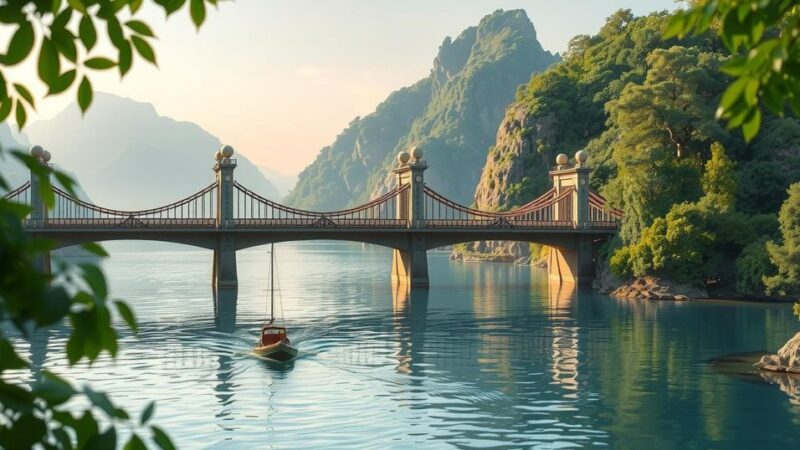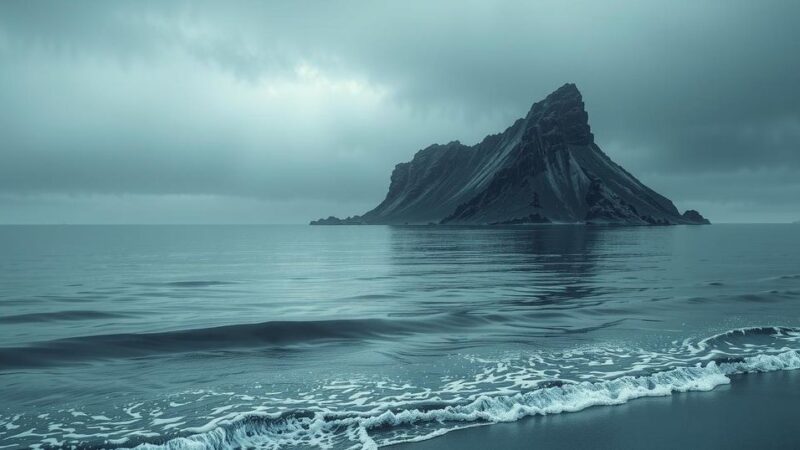Rwanda’s M23 rebels recently seized Goma, alarming many as they emulate Russia’s annexation tactics in Ukraine. The group, allegedly protecting Congolese Tutsis, is viewed as a puppet of Kagame’s regime, asserting control while denying direct involvement. This reflects a troubling trend in international relations concerning territorial integrity, as Rwanda exploits Congolese chaos. Without focused international pressure, these actions risk establishing a norm of imperialism that could undermine global peace.
The recent seizure of Goma by the M23 rebel group marks a distressing event in the Democratic Republic of the Congo (DRC). This incident draws a parallel to the situation in Ukraine in 2014 when Russia annexed Donbas by employing local separatists. In Congo, Rwanda’s Paul Kagame mirrors this strategy by supporting M23, which claims to protect Congolese Tutsis but serves as a proxy for Rwanda’s territorial ambitions, enabling it to effectively grasp Congolese land while denying direct involvement.
The chaos in Congo continues to escalate, with millions displaced and rampant violence characterized by systematic looting and sexual violence. Additionally, Rwanda has become a significant exporter of gold despite limited domestic mining. Observers fear that Kagame’s objectives may extend beyond Goma, potentially seeking to unseat the Congolese government. The state of disarray in Congo contrasts starkly with Ukraine’s democratic structure.
Moreover, Rwanda’s actions reflect the broader erosion of international norms against territorial acquisition. Historical precedents suggest that a revival of imperialism could be underway as leaders witness aggressive territorial claims by nations such as Russia and China. The implications of Rwanda’s conduct are troubling, as they signify a resurgence in accepting the idea that might equates to right, placing future peace at risk.
Rwanda’s encroachments are not new, as M23 previously seized Goma in 2012; however, international pressure led to their retreat. Currently, the dynamics have shifted, with weakened UN presence and increased foreign support for Rwanda. Notably, American diplomatic efforts under President Biden have hinted at a strategy to curb Kagame’s ambitions, although uncertainty surrounds the direction of subsequent U.S. policy under President Trump.
Western nations grapple with their perceptions of Rwanda, often viewing Kagame’s government favorably due to its relatively stable environment, which fosters development initiatives. Nonetheless, donors must reconsider their approach, recognizing Rwanda’s reliance on external support. A concerted effort by international stakeholders is necessary to inhibit Kagame’s territorial pursuits.
Ultimately, permitting Kagame to retain control in Congo would set a dangerous precedent for global governance. The international community must reject the notion of allowing powerful entities to claim territory from weaker nations, as this not only endangers the sovereignty of other states but also forebodes further violence and instability on a broader scale.
The current unrest in the Democratic Republic of the Congo, particularly around Goma, stems from the actions of the M23 rebel group. This reflection aims to contextualize the situation by comparing it to Russia’s annexation of Crimea and parts of Donbas in Ukraine. Rwanda’s ongoing involvement in Congo has historical roots and has evolved into a significant geopolitical maneuver, raising concerns about territorial integrity and the resurgence of imperialistic policies in the region and beyond.
In conclusion, the situation in Congo represents a critical juncture where the implications of Rwanda’s actions extend beyond mere territorial disputes. It highlights a potential resurgence of imperialism and requires a strong international response to uphold the principles of sovereignty and territorial integrity. Without decisive action and accountability, the precedent set by Rwanda could embolden other nations to pursue similar aggressive policies, ultimately leading to greater instability and humanitarian crises.
Original Source: www.hindustantimes.com
